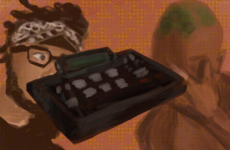On April 8, the United Kingdom released a 102-page white paper, entitled the Online Harms White Paper, that outlines future plans to penalize social media and technology companies that don’t take steps to protect users from harmful, fake, or dangerous content. Companies that don’t conform could face heavy fines and the threat of having their websites blocked by internet service providers. If the paper’s proposals are implemented, they would affect companies such as Google, Youtube, Facebook, and Twitter, and is the first internet safety law in the world. Although this framework aims to protect some of the most vulnerable online users, it has many glaring issues.
First and foremost, the white paper prompts a discussion of whether the internet is a place for freedom of expression. Although the internet does host terrorist propaganda, hatred, and other forms of harmful content, it’s essential that any censorship laws are handled with extreme caution.
The internet reaches a vast audience; according to the World Bank and ONS UK, more than 80% of the U.K.’s population uses the internet. Censoring the internet means censoring the people, which goes against the white paper’s vision to cultivate “a free, open and secure internet with freedom of expression online.”
Governments are often inefficient, and the U.K.’s parliament is no exception. Although this white paper attempts to target very specific aspects of the internet, in reality, it will play out as more of a blanket ban. The proposal lacks specificity and clarity of instructions, and with the sheer size of these platforms (far too large to be human-monitored), it’s unlikely that it is even plausible.
Additionally, it’s important to consider that these companies have already been taking steps to reduce hate speech for years. Current methods prove imperfect, and it is unlikely that the white paper will bring about more effective change. If anything, in order to impose these bans on harmful content, these companies will be forced to monitor online activity more closely than they already do.
Besides being a creative art form and a source of news, connection, and other vital aspects of everyday life, the internet offers a voice for those who feel marginalized. It’s essential that these voices not be silenced. The internet is often a reflection of society, and as horrible a place as it may be at times, it’s important that the government doesn’t suppress that. The rise of hate speech, propaganda, and other horrific aspects of the online world do not stem from a problem with the internet. Although many feel safer behind screens, this dangerous content is truly rooted in problems within our society.




